
Liberty
What is liberty?
The proper notion of liberty focuses on negative rights, based on freedom of action - being free from restrictions on speech, on gun ownership, on religious beliefs and practices, and even from government itself. Unfortunately, there is a far more expansive notion of liberty - the "positive rights" conception - which condones arbitrary power over people and fosters the aggression which allows some people to coerce others.
The freedom to engage in actions of one's choice, and life of one's community, depends on others not forcibly obstructing you. Rights such as these, that exist in any time and place and obligate no other person to a positive duty, are called negative rights. Rights that require others to do something, or pay something, are counterfeit "rights," effectively the "right" to enslave others. Freedom is about not being coerced by others. So-called positive rights are about power, not rights - generally the violence-power of government to rob some people and benefit others. If one has little wealth, if one is hungry, nevertheless one can be free in the political sense. Even though one may not currently have the economic power to buy a car, with freedom - the enjoyment of negative rights - that power has a chance of being achieved. One will not be forcibly prevented by others from being the author of one's own life.
It is important to understand that the traditional US conception of liberty - both in traditional libertarian thought and as originally postulated in the Constitution, depended soleley on negative rights. Everyone from small property-holders (mainly farmers and small businessmen) to manufacturers and entrepreneurs, were "endowed" with individual rights due to their status as human persons. Of course, for a long time women and blacks were not deemed persons, which was a grave injustice. Note that so-called positive rights almost always violate negative rights, since positive rights require some action to be done by others for the claiment by others, rather than simply requiring only non-interference. The realities of corporatism, actually existing corporate capitalism, are a far cry from the "yeoman farmer" and individual entrepreneurial ideal, making protection of rights crucial. One goal of an anarchist federation is to help define a new framework adequate to protect the consistent negative rights conception of freedom.
Why must liberty be a central part of the design of an anarchist federation?
It is essential that we not cede the notion of freedom to either the statist right or statist left; indeed - we should view any design for a system which does not incorporate, in its core structural principles, a respect for individual liberty as fundamentally flawed. Libertarianism confronts and defies government power, and consequently the power it can sell to corporate cronies and other special interests. Here decentralization, pluralism, and freed markets are key strategies, the former by making power as small scale as is feasible, the latter two by ensuring that no single political or economic interest is able to acquire monopoly power. The matrix which supports freedom in an anarchist federation is a diverse set of institutions, scaled wherever possible to enable community participation and free market competition, and designed to enable all people to flourish.
Enjoyment of individual rights is a necessary condition for self-determination. Since the time of Jefferson’s yeoman farmer to todays information age, this has always been the case. There have been attacks on this liberty. Franklin Delano Roosevelt’s New Deal and "Second Bill of Rights" included such counterfeit rights as the "right to a useful and remunerative job." Since someone has to provide this job, this is clearly an invalid positive "right." Economic security is certainly desirable, no doubt it is a benefit, but not something others should be forced to provide for you through government threats of violence. Such an inversion of rights is a danger to American liberty. In short, government plunder-and-redistribute schemes, such as federal job "guarantees," a universal basic income, and other programs, amount to organized attacks on human freedom - A forcing B to pay C.
Where is a consistent conception of liberty being developed
on the ground today?
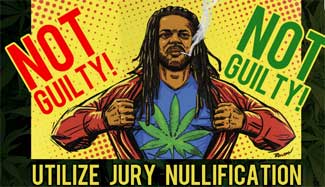
Interest in the idea of individual rights - especially in the areas of cannabis and firearms, is increasing. Nullification of central government law has occurred in 26 states in the case of marijuana prohibition. Other areas of human rights have been attacked relentlessly recently, such as freedom of association - the right to interact (or not) according to your own choices and preferrences. When the government can order a Jew to bake a cake with a swastika on it for a Nazi, then freedom of association is being grossly violated.
Note that negative rights are always consistent - there can be no conflict in bone fide rights. If two alleged rights conflict, then logically at least one must necessarily be counterfeit. Positive rights, however, are inconsistent and conflicting - they require constant tradeoffs between this positive "right" and that one. Thus, positive rights theory is often used to rationalize the violation of negative rights. If someone claims a positive right to health care, for example, the resources must be paid for by others - a violation of others negative right to keep the fruits of their labor.
Also see:
Positive Rights vs. Negative Rights video featuring Aeon Skoble.Further reading:
Ayn Rand, Man's Rights.
Frederic Bastiat, The Law.
Lysander Spooner, Natural Law.
Rothbard, Murray, The Ethics of Liberty.
 Intro |
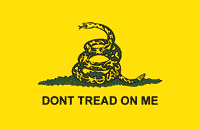 America |
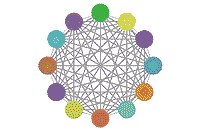 Federation |
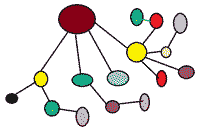 Decentralization |
 Liberty |
 Culture |
 Money |
 Markets |
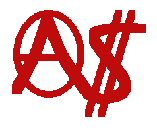 Hogeye Bill's Anarchism Page |